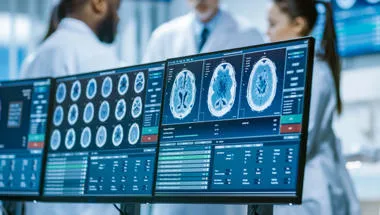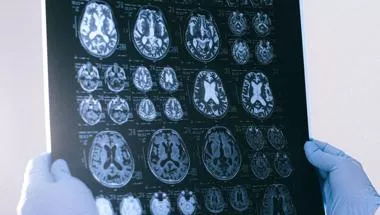
Professor Katya Rubia
Professor of Cognitive Neuroscience
Biography
Katya Rubia is Professor of Cognitive Neuroscience at the Institute of Psychiatry, Psychology & Neuroscience at King's College London.
Katya Rubia completed her PhD in Neuropsychology at the Ludwig-Maximilians-University in Munich in 1994 and joined King's in 1995 as a post-doctoral RA on a European Fellowship, after brief post-doctoral RA posts in the Technical University of Munich and the University of Amsterdam.
Her key areas of expertise are:
- neuroimaging of cognitive functions in normal development
- structural and functional neuroimaging of neurodevelopmental disorders, most prominently ADHD but also autism spectrum disorder, obsessive-compulsive disorder, conduct disorder and childhood maltreatment
- pharmacological imaging of ADHD drugs and of neurotransmitter manipulations (Methylphenidate, Lisdexamfetamines, Atomoxetine, Guanfacine; Fluoxetine, Tryptophan depletion, Tianeptine, Cannabis, Heroin)
- PET imaging in ADHD adults
- Neurotherapeutics such as Real-time fMRI Neurofeedback and non-invasive brain stimulation combined with cognitive training in ADHD
Katya Rubia received the European Kramer-Pollnow Prize (KPP) in 2013, given for scientific excellence in clinical research in biological Child and Adolescent Psychiatry. In 2019 she was elected Corresponding Foreign Member of the Royal National Academy of Medicine of Spain which is given to internationally renowned academics that have contributed to the field of Medicine.
Recipient of the 2019 and 2020 Highly Cited Researchers of ISI Web of Science that recognises the world’s most influential researchers of the past decade, demonstrated by the production of multiple highly-cited papers that rank in the top 1% by citations for field and year in Web of Science.
Research

Developmental Neuroimaging
Our research uses neuroimaging, neurocognitive, and psychopharmacological methods to better understand ADHD and related child psychiatric disorders as well as normal brain development from childhood to adulthood.

ATTENS Project
The ATTENS Project explores the potential of eTNS in improving symptoms, cognitive performance and the functioning of the brain in children with ADHD.
Project status: Completed

Social media, Smartphone Use and Self-Harm in Young People (3S-YP) study
The rise in self-harm has been linked to increasing use of social media and internet technology among young people.
Project status: Ongoing
News
COMMENT: Brain device for ADHD shows no benefit in major UK trial
Diagnoses of attention deficit hyperactivity disorder (ADHD) are rising rapidly in the UK. More children and teenagers than ever are being referred for...

Brain stimulation device cleared for ADHD in the US is overall safe but ineffective
A large multicentre clinical trial led by King’s College London with 150 children and adolescents has shown that a device cleared by the US FDA to treat ADHD...

New study finds that both stimulant and non-stimulant medications improve cognition in ADHD
A systematic review and meta-analysis study by King’s researchers tested the long-term effects of Methylphenidate and Atomoxetine on attention, reaction time,...

New NIHR Funding to explore effects of external Trigeminal Nerve Stimulation in ADHD
Multi-centre study led by Professor Katya Rubia will look at this alternative, non-drug treatment for children with ADHD

Research

Developmental Neuroimaging
Our research uses neuroimaging, neurocognitive, and psychopharmacological methods to better understand ADHD and related child psychiatric disorders as well as normal brain development from childhood to adulthood.

ATTENS Project
The ATTENS Project explores the potential of eTNS in improving symptoms, cognitive performance and the functioning of the brain in children with ADHD.
Project status: Completed

Social media, Smartphone Use and Self-Harm in Young People (3S-YP) study
The rise in self-harm has been linked to increasing use of social media and internet technology among young people.
Project status: Ongoing
News
COMMENT: Brain device for ADHD shows no benefit in major UK trial
Diagnoses of attention deficit hyperactivity disorder (ADHD) are rising rapidly in the UK. More children and teenagers than ever are being referred for...

Brain stimulation device cleared for ADHD in the US is overall safe but ineffective
A large multicentre clinical trial led by King’s College London with 150 children and adolescents has shown that a device cleared by the US FDA to treat ADHD...

New study finds that both stimulant and non-stimulant medications improve cognition in ADHD
A systematic review and meta-analysis study by King’s researchers tested the long-term effects of Methylphenidate and Atomoxetine on attention, reaction time,...

New NIHR Funding to explore effects of external Trigeminal Nerve Stimulation in ADHD
Multi-centre study led by Professor Katya Rubia will look at this alternative, non-drug treatment for children with ADHD

